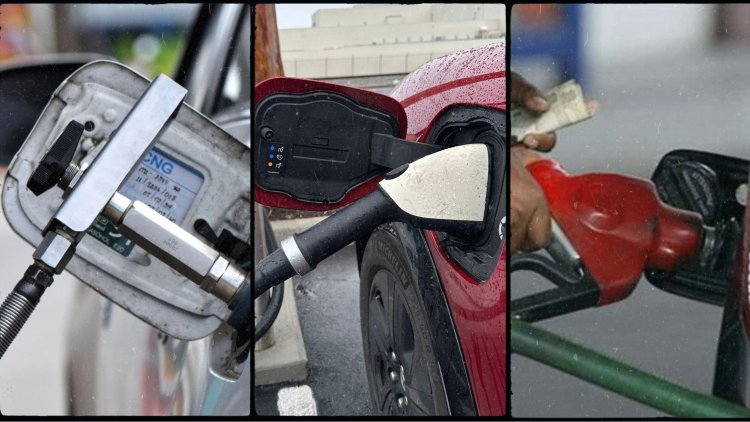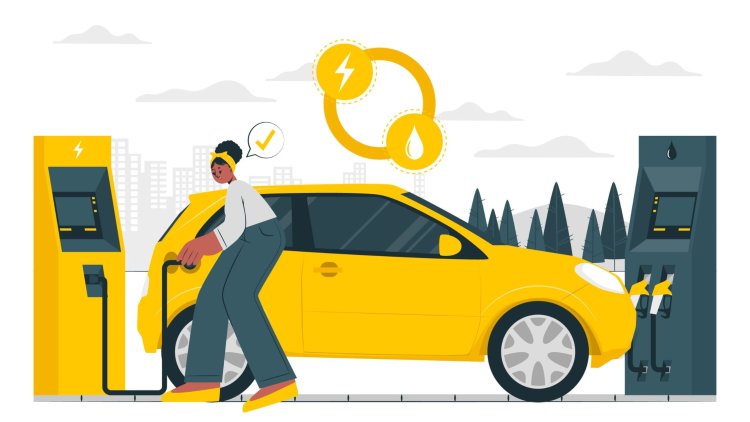Exploring the Pros and Cons of CNG, Hybrid, and Petrol Cars: Which One Is Right for You?
Gas, electric, or hybrid? Which car is the bonzer fit for you?

In Delhi. People are increasingly turning to alternative fuel sources or cutting-edge technology as a result of the rising costs of petrol and diesel as well as changing regulations. Whereas on the one hand, the government is promoting electric cars and on the other, people like them. The drawbacks of electric vehicles, however, continue to turn off a sizable portion of the population. This is the cause of the rapidly rising CNG and hybrid vehicle sales. The sale of gasoline-powered vehicles has not decreased at the same time. Knowing which of these three cars will be a profitable deal for you and which cars are technologically superior is now equally important.
It's crucial to understand the differences between hybrid and CNG vehicles, mainly because both of these vehicles are powered by petrol. Even in terms of mileage, there is no comparison between them, but their sales differ significantly. Please describe the differences between the three types of cars and which one would be the best for you.
Suggested: All New Maruti Suzuki FRONX: Specs, Features, Variants, and Competitors
CNG's advantages and disadvantages
- The main benefit of a CNG vehicle is its low cost of production. CNG kit cars cost a little more than cars with standard engines.
- CNG vehicles offer the best mileage. This is because it is a gas and completely burns when it is burned.
- These vehicles can be operated for less money because CNG is less expensive than petrol.
- When it comes to drawbacks, the cost of maintenance for CNG vehicles is significantly higher than that for conventional vehicles.
- The cost of CNG and petrol differs only slightly. Driving these cars is no longer as affordable as it once was in this circumstance.
- Accident risk is higher for CNG vehicles. This has a leakage issue, which can also start a fire.
- CNG vehicles are less powerful. When compared to gasoline and hybrid cars, their pickup and top speed are significantly lower.
- The lack of CNG stations in every city is these vehicles' most significant drawback.
Benefits and drawbacks of hybrid vehicles
- This excellent technology also provides the petrol engine with electric power. Powerful and performance-oriented hybrid vehicles are available. Compared to petrol and CNG, these vehicles have much higher torque and top speeds.
- Hybrid vehicles require the same maintenance as petrol vehicles.
- Most hybrid vehicles don't need to be charged. There are however plug-in hybrid vehicles as well, and they need to be charged. However, these vehicles also have an electric mode.
- The most significant drawback of hybrid vehicles is their high price due to expensive technology.
- The cost of having the battery pack or motor repaired is very high if there is a problem with them.
- Cars with hybrid powertrains get excellent gas mileage. Their mileage is significantly higher when compared to petrol vehicles, despite being slightly less than CNG.
Read more: MG Comet EV Unveiled: Specs, Range, and Competitors
Petrol cars' benefits and drawbacks
- The main benefit of petrol vehicles is their cost, which is lower than that of hybrid and CNG vehicles.
- Pure petrol vehicles have much more power than CNG vehicles. They have a higher top speed and pickup because of this.
- The upkeep of petrol vehicles is minimal.
- Mileage is by far the biggest drawback of petrol vehicles. These vehicles are expensive due to rising petrol prices and poor mileage.
- Petrol vehicles are an outdated technology, and because of the constant changes made to them, their engines will soon be rendered obsolete.
- Petrol cars emit more pollution than Cng and hybrid vehicles.













